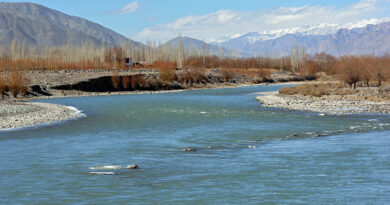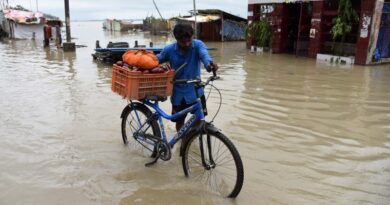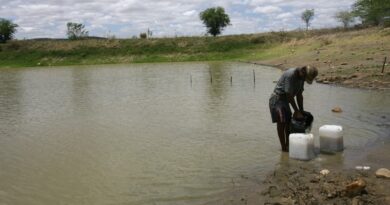Inadequate WASH provisions in healthcare facilities worldwide, 1.8 billion at risk

Lack of basic water services at health care facilities worldwide has put as many as 1.8 billion people, largely health workers and patients, exposed to additional risk of infection and contracting COVID-19, the WHO & UNICEF have warned.
Water, sanitation and hygiene (WASH) are vital to the safety of health workers and patients, yet provision of these services is not prioritized. Worldwide, one in four health care facilities has no water services, one in three 3 does not have access to hand hygiene where care is provided, one in 10 has no sanitation services, and one in three 3 does not segregate waste safely, the two UN agencies said in a new report.
The report – Fundamentals first: Universal water, sanitation, and hygiene services in health care facilities for safe, quality care – comes as COVID-19 is exposing key vulnerabilities within health systems, including inadequate infection prevention and control.
“Working in a health care facility without water, sanitation and hygiene is akin to sending nurses and doctors to work without personal protective equipment. Water supply, sanitation and hygiene in health care facilities are fundamental to stopping COVID-19. But there are still major gaps to overcome, particularly in least developed countries”, said WHO Director-General Dr Tedros Adhanom Ghebreyesus.
The situation is worst of all in the world’s 47 least developed countries (LDCs): one in two health care facilities does not have basic drinking water, one in four health care facilities has no hand hygiene facilities at points of care; and three in five lack basic sanitation services.
“Sending healthcare workers and people in need of treatment to facilities without clean water, safe toilets, or even soap puts their lives at risk,” said UNICEF Executive Director Henrietta Fore.
“This was certainly true before the COVID-19 pandemic, but this year has made these disparities impossible to ignore. As we reimagine and shape a post-COVID world, making sure we are sending children and mothers to places of care equipped with adequate water, sanitation and hygiene services is not merely something we can and should do. It is an absolute must.”
But this can be fixed, the report states. Preliminary estimates indicate that it would cost roughly $1 per capita to enable all 47 LDCs to establish basic water service in health facilities. On average, $0.20 per capita is needed each year to operate and maintain services.
According to the report, immediate, incremental investments in WASH have big returns: improving hygiene in health care facilities is a “best buy” for tackling antimicrobial resistance. It reduces healthcare costs because it brings down health-care associated infections (which are costly to treat). It saves time as health workers do not have to search for water for hand hygiene. Better hygiene also increases uptake of services. This all adds up to a return of $1.5 for every dollar invested.
These services are especially critical for vulnerable populations, including pregnant mothers, newborns and children. Improving WASH services in health care facilities is particularly important around childbirth when far too many mothers and newborns suffer and die, including from preventable conditions like sepsis. Better WASH services could save a million pregnant women and newborns’ lives and reduce still-births.
The report provides four main recommendations: Implement national roadmaps with appropriate financing; monitor and regularly review progress in improving WASH services, practices and the enabling environment; develop capacities of health workforce to sustain WASH services and promote and practice good hygiene; integrate WASH into regular health sector planning, budgeting, and programming, including COVID-19 response and recovery efforts to deliver quality services.
Global WASH and health partners have shown their support for meeting global and country WASH in health care facility targets. By 2020, over 130 partners have committed resources, of which 34 have made dedicated financial commitments totalling $125 million.
Despite this, WHO and UNICEF point out that more catalytic global funding, technical support, and domestic resourcing was needed to keep health care workers and patients safe and protected. The two UN agencies have called for commitments to integrate WASH in health care facilities in all national COVID-19 plans, vaccine distribution and economic recovery packages.
“For millions of healthcare workers across the world, water is PPE. It is essential that financing keeps flowing to bring water and sanitation services to those battling the COVID crisis on the frontlines. Funding WASH in healthcare facilities is among the most cost-effective investments that governments can make”, said Global Director for Water at the World Bank Group Jennifer Sara.



